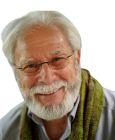Relationships
The Art of Improvising
Personal Perspective: A life skill that expands our capabilities.
Posted May 28, 2024 Reviewed by Kaja Perina
"What good is melody, what good is
music If it ain't possessin' something sweet?
Nah, it ain't the melody and it ain't the music,
There's something else that makes this tune complete,
Yes, it don't mean a thing, if it ain't got that swing"
--Duke Ellington/ Irving Mills
How can improvising, an action that isn't planned and emerges from a hidden place in our psyche, be a skill that explores new possibilities? Mary Catherine Bateson described it as a ". . . high order of skill,” one that should be practiced by the hour.

The Cambridge Dictionary defines it as a verb: "To invent or make something, such as a speech or a device, at the time when it is needed without already having planned it."
Stephen Nachmanovitch author of The Art of Is, believes improvisation is "a language for working out the dynamics of being alive, being within, and comprehending a world of intricate pattern and relationship, a world in constant flux, responsive to subtle chance variations of the environment." Unlike succumbing to our cultural dependency on static nouns that encourage isolated labels, we can turn to our innate desire to actively share our insights.
So how do possibilities manifest from improvising? First, improvising is interactive and consists of a win-win volley of listening and paraphrasing. This supports a profound opportunity to mutually learn with one another. If we recognize the benefits of sharing our interconnections, then we can understand and experience how we are interdependent.
This is best exemplified by William Blake who famously sang his "Ode to Possibilities," "To see a World in a Grain of Sand And a Heaven in a Wild Flower . . . " Gregory Bateson, who more than anyone best explained our interdependence with nature similarly expressed it by asking, "What is the pattern that connects the crab to the lobster and the primrose to the orchid, and all of them to me, and me to you?”
We are all poets when we improvise. Poems are messages from our hearts and souls. Improvising offers synchronicity, a mind/ body phase locking. This is the stochastic process, a random segue to opening the door to our collective reservoir of all that has ever and will occur.
It is the basis of our evolution, how we adapt and adjust our everyday actions. A prelude to experiencing what was previously hidden. It allows our potential to emerge fostering harmonious interconnections similar to the eventual identical swaying of pendulums.
When we communicate there is a potential for synchronicity. It originates from the neurons in our brain. In my Anthropology classes at Columbia University, we would hook each other up with biofeedback machines, slow down films to look at frame-by-frame body movements, and use our non-verbal senses in new ways. This all pointed to “we communicate through shared states.” This state-sharing is like being with someone on an escalator, moving at a constant speed. When joining begins, even with a different temperament or energy, a “phase locking” occurs which synchronizes our biological rhythms producing a profound opportunity to connect. If we desire, which is what improvisation is about, there is a distinct harmony (that is always available) of "good vibrations.”
What are the practical applications of improvising? A caveat is that with any quest for mutually shared possibilities, there needs to be a commitment to avoid adversarial outcomes. This can under-mind collaborative attempts to improve relationships, and conflict resolution to explore infinite creative possibilities.
With significant relationships, friendships, organizations, and politics, it is a chance to sustain new forms of communication. It also demonstrates the many different ways and exciting variations of what might of been thought of as being mundane.
Below are some suggested prompts to initiate an improvisational experiences with another or a small group. If you like make one or more up. Then take turns keeping a dialogue going, acknowledging with a "yes, and..." message to build on each other's unique situational descriptions.
Improvisational teacher, Tara Moorman, makes the point that "if you want to see shifts in your relationship patterns with your honey, friends, frenemies, coworkers, neighbors, family, and even your favorite barista, getting into Improv might not be a bad idea."
Here are some sample prompts (Initiations):
How is it that it takes two to know one?
Share what it means to ask five how questions to get to the core of a problem.
What does it mean that adaptation is like an addiction?
"The map is not the territory" is about_____.
Expound on how life coalesces towards vitality in unseen ways.
Act out how two halves may not make a whole.
Conflict is the grist for creativity.
Share how to make a difference that makes a difference.
What is it like to be me?
After improvising, discuss with your partner how each of you experienced the exercise. What were the possibilities that came up that were new and unique? When comedian Kevin Mullaney taught improv in Chicago, the word he mostly heard in response from his students was "relationship." Improvising allows us to better know ourselves and encourages a novel way to share and learn from others. Enjoy the results and savor your interdependence.
References
Bateson, Mary Catherine (2020). Interviewed On Being, https://onbeing.org/programs/mary-catherine-bateson-living-as-an-improvisational-art/
Bateson, Gregory (1972). Steps to an Ecology of Mind: Collected Essays in Anthropology, Psychiatry, Evolution, and Epistemology, University of Chicago Press, Chicago, Illinois.
Moorman, Tara (2020), Relationship Building is Key to Good Longform Improv, Vintage Improv Blog.
Nachmanovitch, Stephen (2019), The Art of Is: Improvising As A Way Of Life, New World Library: Novato, California.




